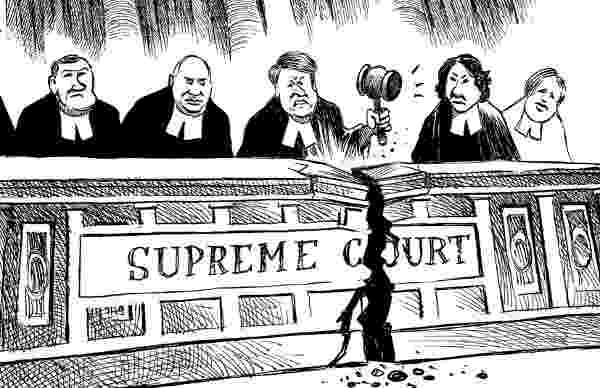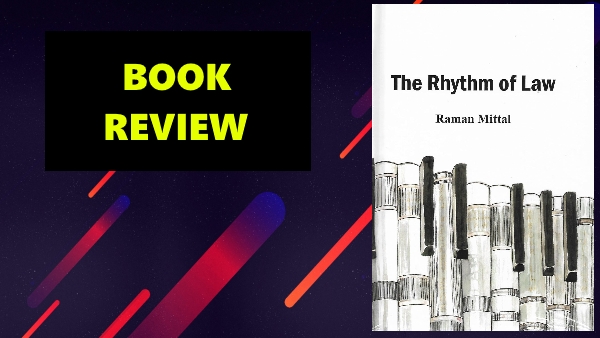KS Puttaswamy vs. Union of India delivered a landmark judgment also known as Right to Privacy Judgement in which a bench headed by 9 Judges of the Supreme Court of India held with one accord that the Right of Privacy is a well established and protected right granted to every citizen by the Constitution of India. In addition to this, the apex court also stated that the Right to Privacy holds equivalent importance just as the other Fundamental Rights mentioned in the Constitution of the country.
The matter was brought to notice before the Supreme Court of India by a retired judge of The High Court named K.S. Puttaswamy, raised questions about the meant to be a compulsory practice by every citizen in order to enjoy services and benefits provided by the Government. The Central Government of India proposed the Aadhar Scheme (Uniform Biometrics Based Identity Card). The Government argued that the Constitution did not grant specific protection for the right to privacy. The Court reasoned that privacy is an incident of fundamental freedom or liberty guaranteed under Article 21 which provides that: “No person shall be deprived of his life or personal liberty except according to procedure established by law”.
However, the Central Government argued upon this stating that the Constitution of India does not provide any specific and special protection and attention to the Right of Privacy. While the Supreme Court said that Privacy is basically an essential ingredient of liberty and fundamental freedom which has been promised and granted to every citizen of the country under Article 21 of the Constitution of India.
The apex court quoted Article 21 of the Constitution, which clearly says that–“No person shall be deprived of his life or personal liberty except according to procedure established by law”.
It was a landmark judgment that took the challenges to constitutionality to a whole new level, opposing bans on alcohol & beef consumption in several states of India and on same-sex legislation (i.e. LGBTQ). Thus, people started expecting the Government of India to also establish laws in order to protect not only the data but also the privacy of a person too. This led to tremendous debates on social media and news channels where the people of India mocked the Government policies by citing the rules and regulations over privacy practiced in different countries of the world.
FACTS OF KS PUTTASWAMY CASE:
- 91-year-old retired High Court Judge Puttaswamy brought forth the case against the Union of India (the Government of India) before the bench of nine judges of the Supreme Court of India which was set up on the grounds of the Constitution Bench to lie down emphasis on the fact that whether the right to privacy was guaranteed as an independent fundamental right following conflicting decisions from other Supreme Court benches.
- A challenge to the government’s Aadhar Card scheme was the primary motto of the latest case (a form of uniform biometric-based identity card) which was proposed by the government as a mandatory step to access the government services and benefits.
- It brought the challenge forth in front of a three-judge bench of the Supreme Court of India in the matter of violating the right to privacy of the public. Although the Attorney General argued regarding the Union of India that the Constitution of India cannot provide specific protections for the right to privacy.
- On the grounds of this information, he made a case of M.P. Sharma v/s Satish Chandra (an eight judge bench) and Kharak Singh v/s Uttar Pradesh (a five-judge bench). However, a succeeding eleven judge bench found it did not construct the fundamental rights as differentiated rights, therefore, confirming the dissenting view in the matter of Kharak Singh. This also held the grounds for the decision of smaller benches of the Supreme Court which explicitly established the right to privacy.
It was due to reason that a Constitutional Bench of nine judges was set up to conclude that there was a requirement to determine whether there was a fundamental right to privacy within the Constitution.
LEGAL ISSUES:
The Petitioner argued before the nine-judge bench that this right was an independent right, guaranteed by the right to life with dignity under Article 21 of the Constitution.
The Respondent submitted that the Constitution only recognized personal liberties which may incorporate the right to privacy to a limited extent.
The Court considered detailed arguments on fundamental rights, constitutional interpretation, and the theoretical and philosophical bases for the right to privacy and this right.
RATIO-DECIDENDI:
The historical 9 Judge Bench that heard this matter comprised the following Justices of the Supreme Court of India —
- J.S. Khehar,
- J. Chelameswar,
- S.A. Bobde,
- R.K. Agrawal,
- R.F. Nariman,
- A.M. Sapre,
- Dr. D.Y. Chandrachud,
- S.K. Kaul and
- S.A. Nazeer
The judgment was interpreted as paving the way for the eventual decriminalization of homosexuality in India in Navtej Singh Johar v. Union of India (2018) and abolishing the provisions pertaining to the crime of Adultery under the Indian Legal System in the case of Joseph Shine v. Union of India (27 September 2018). The Supreme Court held that a fundamental right to privacy is guaranteed under the Constitution of India.
Being a crucial matter it referred this case to a 9 Judge Bench in order to prevent any sort of misunderstanding and to deliver an accurate judgement. A committee was formed which decided on the judges that were going to be a part of this exclusive 9 Judge Bench on 18th July 2017. The arguments in this extraordinary and historical matter began on 19thof July 2017 and later on an appropriate judgement was passed by the Supreme Court of India dated 2nd August 2017.
This matter is considered to be a masterpiece judgement as the Supreme Court bench in one accord held the Right to Privacy is a fundamental right of every individual as discussed partly in Article 21 and completely in Part III of the Constitution of India.
After the passing of this landmark judgment, the decisions that were made in MP Sharma & Kharak Singh cases were overruled. After this 2017 judgement, the Right to Privacy has been regarded as a Fundamental Right as well as it has been cited as an example in several landmark rulings, in judgement of the case of Navtej Shine & Joseph Shine.
Found KS Puttaswamy vs. Union of India case summary useful? We have a bunch of useful topics from constitutional law that will help you in your preparation here >>> CONSTITUTIONAL LAW
Check out our YouTube Channel for free legal videos >>> LAW PLANET YT






